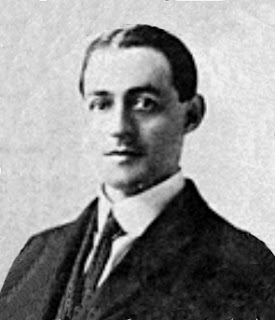In my ongoing analysis and discussion of obedience salvation I have come across a book by A.W. Pink called Studies on Saving Faith (a Biblical response to easy believism). I have never heard of this book until recently. I have been familiar with Pink ever since a teenager when I took up his classic work The Sovereignty of God (the unabridged version) and came to a clear understanding of “Calvinism”. I still count this as one of my all time favorite books. Studies on Saving Faith however is a different book and my opinion is different as well. I think there is a reason I have not heard of this book until now. Although Pink attempts his usual scripture saturation to prove his point, the scriptures he uses demand his presupposed definition of certain terms and are not proving the obedience salvation he is attempting to prove. In this post I want to make some remarks showing the fallacy of his position and how it is ultimately a form of Arminianism to be nice or Romanism to be harsh.
The edition I hold is edited by Don Kistler and has a foreword unsurprisingly by John MacArthur. Although a great debate on saving faith between calvinists Robert Sandeman and James Hervey as well as Baptists Archibald M’Lean and Andrew Fuller raged over a hundred years before his book, he nowhere mentions this. Pink starts off by attacking evangelists of his day for preaching Christ as a Savior from Hell and not sin (p.6). This is an ambiguous attack however as one goes to Hell because of sin and so if Christ saves us from Hell he has saved us from sin. Also, as Luther and the Reformers rightly noted we are simultaneously saved and sinners. While we are being sanctified and putting off sin and the old man every day we are not perfect until we are glorified. Perfectionism was a doctrine promulgated by Arminian John Wesley. Pink could be interpreted as being more akin to Wesley than Luther with this statement. On page 8, Pink make the ignorant and damnable statement that “Something more than ‘believing’ is necessary to salvation”. This is outright denial of sola fide. This statement puts the reliability of Christ into question who said “he that believeth in me shall not perish but have everlasting life”.
In chapter three, Pink states that a no matter how comprehensive a person’s faith is it may not be saving. As a matter of fact, according to Pink, reprobates may know the gospel better than real Christians. He goes even further than those who say there is such a thing as “historical faith” in the reprobate and says that the reprobate may possess a faith given by the Holy Spirit and it not be a saving one (p.16). Pink goes on to say “Thus there is a people who can even show you their faith by their works, and yet it is not a saving one! It is impossible to say how far a non-saving faith may go, and how very closely it may resemble that faith which is saving. Saving faith has Christ for its object; so has a non-saving Faith (John 2:23-24). Saving faith is wrought by the Holy Spirit; so is a non-saving Faith (Hebrews 6:4). Saving faith is produced by the Word of God; so also is a non-saving Faith (Matthew 13:20-21). Saving faith will make a man prepare for the coming of the Lord, so also will a non-saving. Of both the foolish and wise virgins it is written, ‘then all those virgins arose, and trimmed their lamps’ (Matthew 25:7). Saving faith is accompanied with joy; so also is a non-saving Faith (Matt. 13:20).” From this extensive quote you can plainly see that there is no difference between an elect believer and a reprobate according to Pink, which means you cannot know if you are saved! The book of 1 John contrarily states you can know you are saved. Only the elect can truly believe the Gospel of Christ (1 Corinthians 1:18, 2:7,8,14) and if you believe you can know you are saved.
One final quote from Pink on page 32 of his book where he says “Thus an essential element or ingredient in saving faith is a yielding to the authority of God, a submitting of myself to His rule. It is very much more than my understanding assenting and my will consenting to the fact that Christ is a Savior for sinners, and that He stands ready to receive all who trust Him.” This clearly shows “faith” for Pink is really obedience to the law and has nothing to do with the Gospel of Christ. Even for those who hold to “faith” as will such as James Buchanan (see his response to the Sandemanian system in his The Doctrine of Justification pages 174-175) would be astonished and saddened by such a deviation from truth.
To sum up, this is an awful book! It goes even further in error than most inconsistent theologians who claim faith is an aspect of the will or believe the reprobate have “historical faith” in the gospel or believe in a “temporary faith” in the reprobate. Call it Arminianism or Romanism but it is bad theology!



